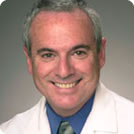 Free education resources for physician bioentrepreneurs.
Free education resources for physician bioentrepreneurs.
Measuring competencies of professionals , particularly doctors, has undergone significant change in the last few years. For example, The Accreditation Council for Graduate Medical Education has formulated competency based education guidelines for graduate medical education that includes the three elements of structure (anatomy), process (physiology) and outcomes. Residency training programs and their directors are now being held accountable for measuring competencies of trainees and graduates in the areas of 1) medical knowledge, 2) patient care, 3) practice based learning and improvement, 4) systems-based practice, 5) professionalism, and 6) interpersonal and communications skills.
Suppose we were to apply a similar thinking to how we train bioentrepreneurs? In an article we published in 2008 (JOURNAL OF COMMERCIAL BIOTECHNOLOGY. VOL 14. NO 1. 2–12 JANUARY 2008) my co-author Patrick Hurley and I reported an overview of bioentrepreneurship education programs in the US and proposed some core learning objectives for those completing bioentrepreneurship education programs. Not unlike the ACGME guidelines, we tried to identify learning objectives related to some general competencies, suggested ways to use increasingly more dependable methods of assessing graduate’s attainment of thesecompetencies throughout their program, and recommended we begin to use outcome data to facilitate continuous improvement of programs.
Furthermore, we proposed core learning objectives that would drive curriculum development and standardization. Since bioentrepreneurship requires an extensive repertoire of knowledge, skills and attitudes, we proposed that bioentrepreneurs should demonstrate a defined set of abilities in the areas of legal environment, marketing, finance, leadership and organizational behavior, clinical trials design and implementation, communication skills, new product development and management, international business and entrepreneurship, regulatory affairs and quality systems, strategic planning and business development, manufacturing , emotional and social intelligence skills, and professionalism and ethics.
That’s a lot to learn. Like medicine, it take a lifetime of continuous learning and practice, and you never get it completely right. However, as your attending used to tell you, by building on solid fundamentals and continuing to add to your experience and knowledge base, you should improve as long as you learn from your mistakes.
So where do you get this information without paying through the nose (remember, I’m an ENT doc)?
For some free resources to get you on your way, I’d suggest:
- The Society of Physician Entrepreneurs Resource page
- Bioentrepreneurship ezine
- Biotechnology education resources
- Multiple newsletters, blogs and information sites at the Biotechnology Industry Organizaton and the Medical Devices Manufacturers Association and the Advanced Medical Technology Association.
- The FDA website
If you are serious about getting more bioentrepreneurship education, make a new year’s resolution to access these FREE sites on a regular basis. It will help you understanding the anatomy and physiology of bioentrepreneurship and equip you with the education you’ll need to start seeing businesses in the clinic. Now, outcomes are different story altogether.
 Physician Entrepreneurs are creating great products and services.
Physician Entrepreneurs are creating great products and services.




 1 Comment
1 Comment



